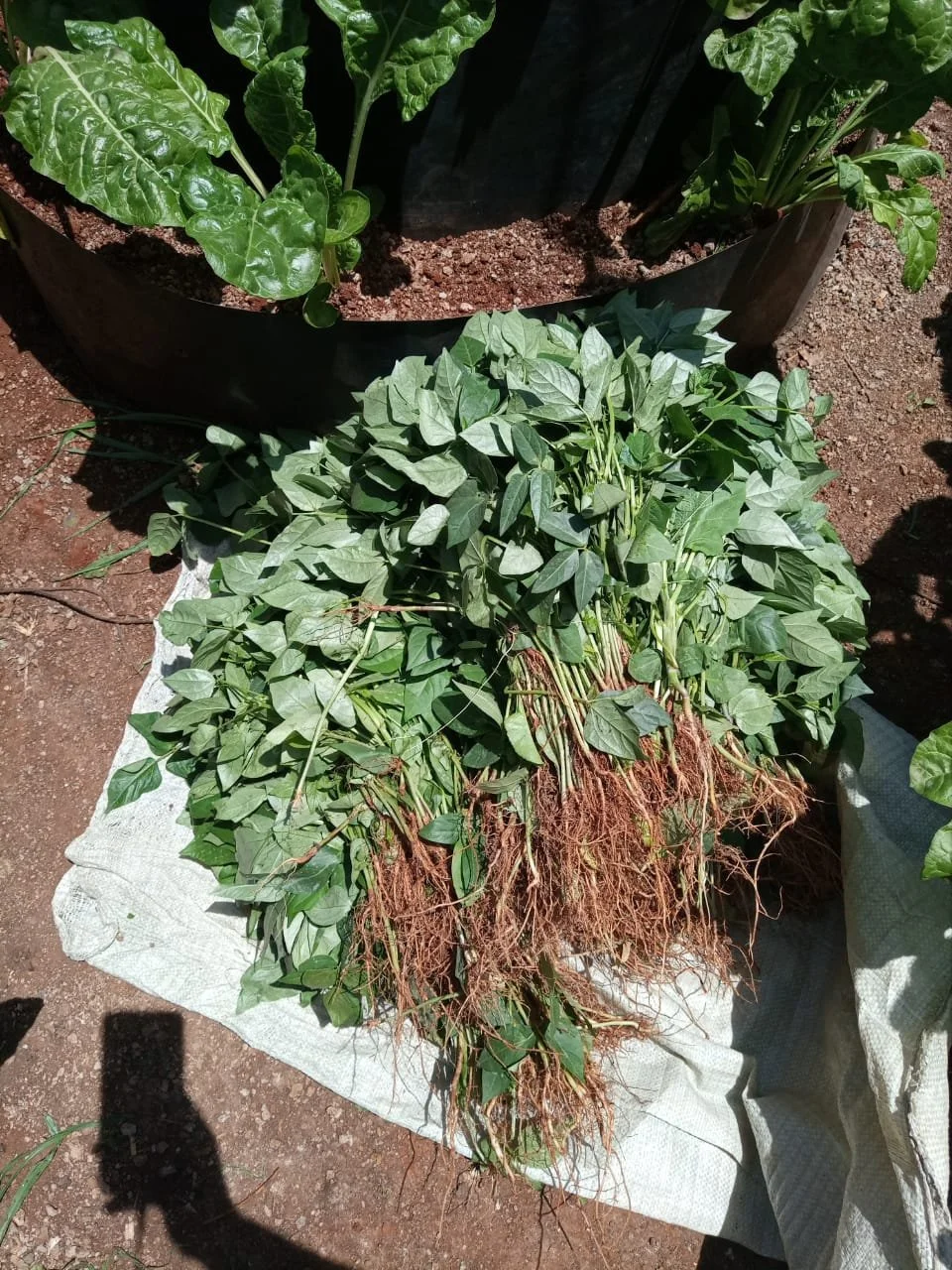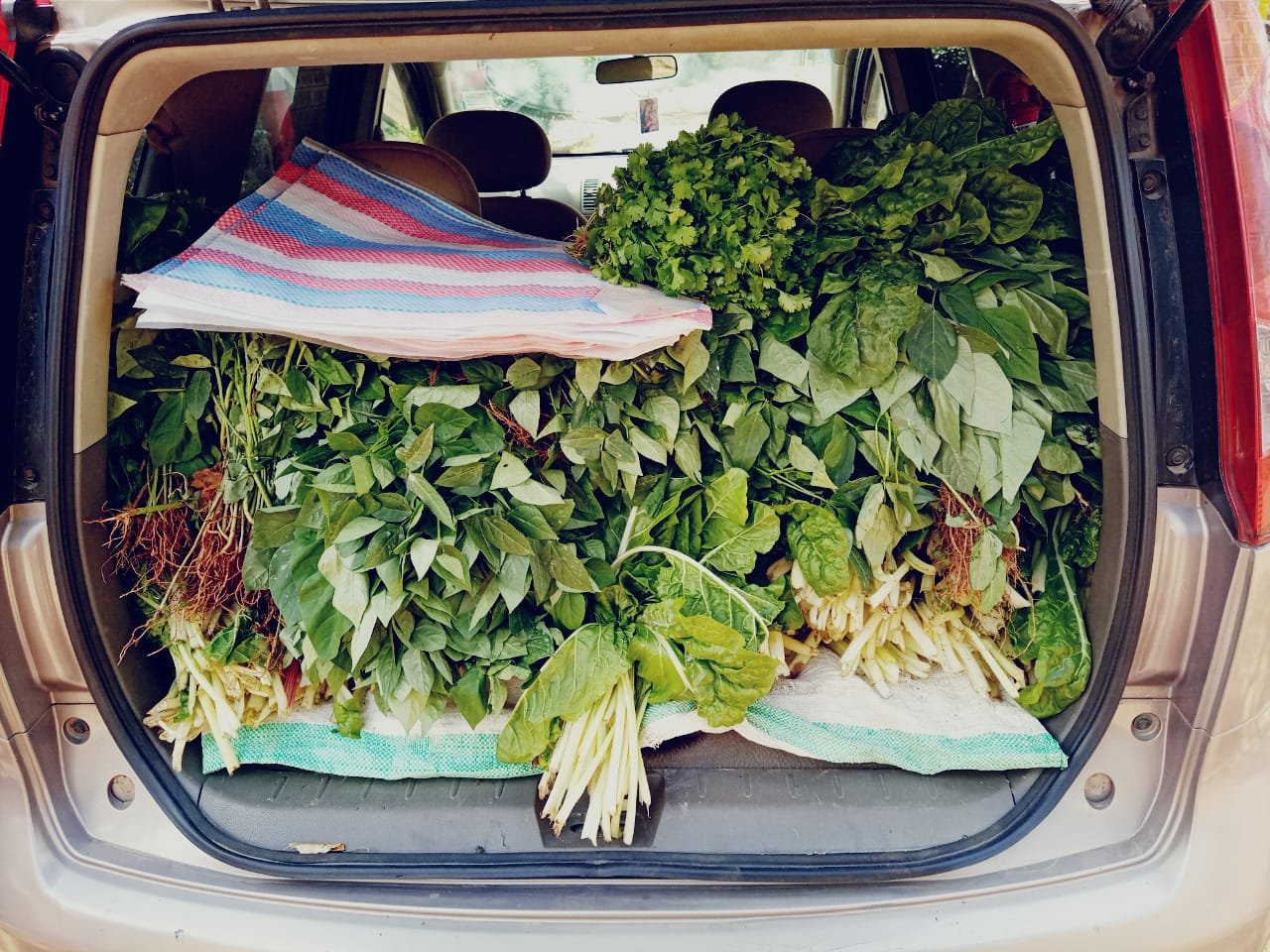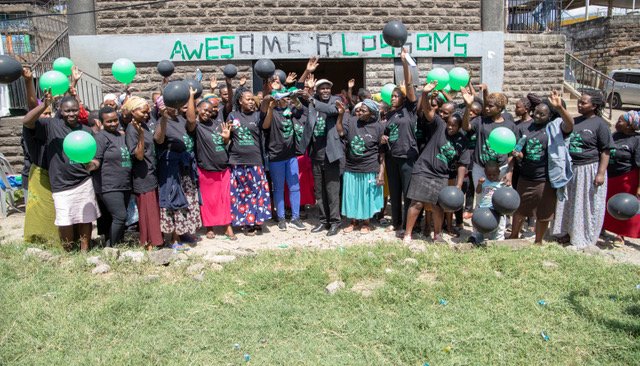
Awesome Blossoms Urban Farm
The Awesome Blossoms (AB) Project, a key initiative of Safe Spaces Organization (SSO) founded by Mrs. Peninah Nthenya Musyimi, is an innovative community-based urban farming project that empowers marginalized women and enhances food security in the Mathare slum area of Nairobi. Focused on organic, water-efficient farming techniques, the project provides affordable, nutritious food while promoting environmental sustainability, economic autonomy for women, and education for marginalized girls.
The project currently operates three hydroponic farms, in partnership with 75 women micro-entrepreneurs and three local schools. These farms grow a variety of organic vegetables, including spinach, kales, and lettuce, and are integral to school feeding programs that directly benefit the students and the surrounding community.
The Challenges
Women in Nairobi’s slums struggle with the lack of opportunity
to achieve food security and economic opportunity. Many lack education and skills to find workFood, especially fresh vegetables, is scarce in households
Safe Spaces community-based organization needs dependable source of funding for its education and empowerment programs
Our Solution
Create a nutritional and economic ecosystem with hydroponic organic farms, supported by Safe Spaces’ Center of Expertise.
Ultimate goal
Present a sustainable nutritional and economic model that can be duplicated and tailored for other slums.
How it Works
Safe Spaces partners with schools in Mathare to create edible fields blossoming in the harsh slum environment. The Awesome Blossoms Project has 4 components:
Safe Spaces Urban Farm
Produces fresh and affordable organic food in Nairobi’s under-served communities
Generates revenue to fund Safe Spaces’ programs and to pre-fund community gardens
Funds the Center of Expertise and trains Safe Spaces Peer Educators to support community entrepreneurs
Provides continuous refinement of low-cost hydroponic systems and methods for use in community projects
Community Gardens
Community women trained in financial literacy, urban farming, and entrepreneurship put their knowledge into practice
Community gardens are pre-funded and supported by Safe Spaces
Organic produce grown and sold locally, providing income for women and households
School Gardens
In exchange for use of land for the farms, schools are allocated gardens which produce organic food for school lunches and income.
These gardens are supported by Safe Spaces
Safe Spaces provides courses for the school children in organic hydroponic farming, nutrition, and food preparation
The gardens serve as a demo farm for student learning
Centre of Expertise
Organizes land for gardens and farms. Provides urban farm solutions and market development
Offers Peer Educator apprenticeships and business mentoring to spread knowledge and support into and among communities
Acts as a centre for entrepreneurship, community farming and education networks. Collects and shares best practices toward the scaling up of urban farming in Nairobi
Achievements
With the support of FAWCO:
3 farms at two schools are installed and producing vegetables. Each of the 3 farms has a school, community and Safe Spaces section
75 community women are trained entrepreneurs, producing vegetables and providing income for their families
Vocational training for 60 young Safe Spaces Peer Educators, giving them financial, sales/marketing, mentoring and organizational skills that can be applied in a variety of careers as well as agribusiness. They have certificates that validate their education and open doors to jobs
The Peer Educators are confidently supporting the gardens and the community women and being recognized for their leadership capabilities
The virtual Center of Expertise has provided training to Peer Educators, community women entrepreneurs, and school teacher. It has monitored plantings, crop care, produce yields, pest/fungus issues and solutions and collected lessons learned and best practices
The community women are reporting success - pride in their work, increased decision-making in their homes, and recognition in their community. They also are experiencing the joy of community working with each other
The schools appreciate the experience of having the farms that not only bring food and learning, but also the refreshing experience for the children of being in the gardens.
Future Goals
Buy their own land for a demo farm and physical Centre of Expertise
Start providing consulting and training to other communities to create their own hydroponic urban farms

















